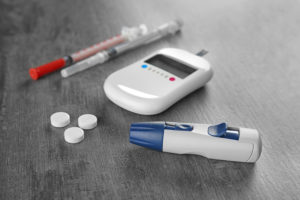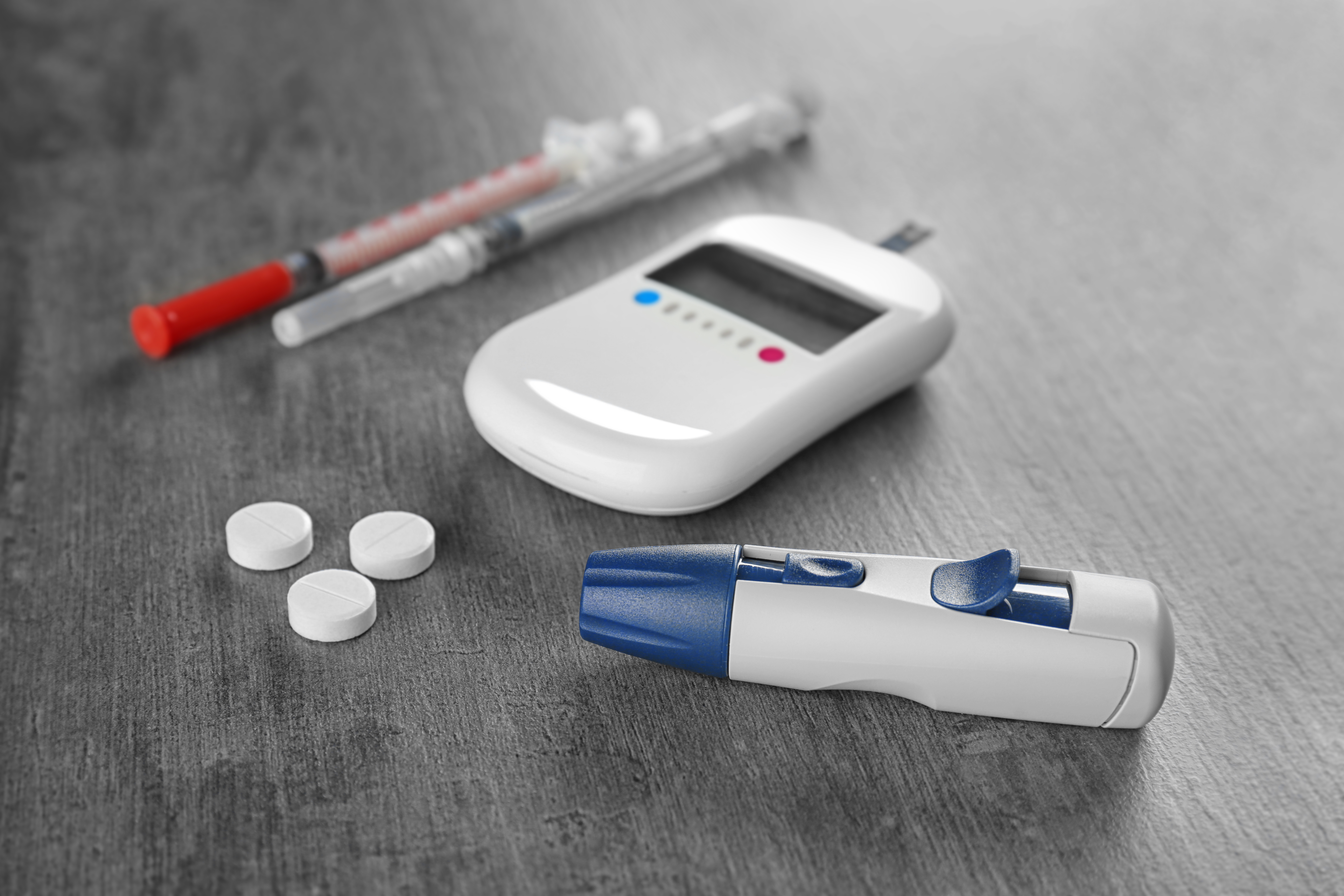
Drugs that Raise Your Risk for Diabetes
It is daunting to know that many medications we are taking for various health conditions have side effects that trigger or aggravate high blood sugar levels, cause diabetes mellitus (DM), or worsen blood sugar control in persons who are already diagnosed with DM.
The American Diabetes Association reports the following statistics:
➢ Approximately 1/2 of the adult population in the United States have diabetes or pre-diabetes
➢ Every 21 seconds, another person is newly diagnosed with diabetes
➢ Nearly 1.5 million are diagnosed per year
➢ More than ½ of Americans take prescription medications for a variety of health problems that potentially affect blood sugar or insulin levels
Drug-induced Diabetes
The use of particular medications can lead to the development of a specific form of diabetes, commonly referred to as “drug-induced” diabetes. Even though your body still produces insulin, these medications prevent insulin from working effectively to keep blood sugar levels within the normal range.
Unknowingly, you may be taking some of these medications that raise your blood sugar levels or even cause you to have DM. These drugs affect your body’s ability to control your blood sugar or insulin levels, especially if you have existing risk factors such as family members who have the condition, obesity, or an inactive lifestyle. So while you’re taking these medications for your health problems, your risk for acquiring DM elevates.
Which prescription medications induce diabetes?
The prescription medications listed below can push your blood sugar levels through the roof. It may be wise to talk with your doctor to understand the indication and effects associated with these drugs. Importantly, however, do not attempt to stop taking these medications at once, because it may be harmful toyou. Set an appointment with your doctor to understand your options, risks, and benefits.
➢ Steroids- these medicines are used to effectively treat inflammation-related ailments such as asthma, allergies, rheumatoid arthritis, and lupus. Corticosteroids, a common form of steroids, have been shown to increase your blood sugar levels; but this may only be transient. Your blood sugar levels typically return to normal range after the steroid therapy is discontinued.
➢ Statins- these wonder drugs are popular for lowering cholesterol, and have been widely prescribed and used since these were introduced in 2003. However, research evidence showed a link between taking statins and developing a higher risk for type 2 DM. As a consequence, in 2012, the US Food and Drug Administration have released advisories on the increased risk for elevated blood sugar levels as well as memory problems for individuals taking statins.
➢ Oral contraceptive pills- these birth control pills have been shown to indirectly elevate blood sugar levels, or complicate diabetes. In particular, taking combined pills that contain a high amount of estrogen or the progesterone levonorgestrel, especially among women with pregnancy-induced diabetes, leads to abnormally high blood sugar levels. Common side effects of these meds include the increased risk for complications among diabetic individuals. For example, individuals who take these pills and have both diabetes and high blood pressure have shown increased chances of acquiring kidney or eye problems.
➢ Growth hormone- in high doses, this is known to reduce sensitivity to insulin. This, in effect, forces the pancreas to make much more insulin than it should, resulting in the increase of blood sugar levels. This is primarily observed for obese and elderly individuals.
➢ Beta-blockers- these drugs are prescribed to manage heart-related problems such as chest pain, high blood pressure, and heart diseases. These medicines block the release of hormones, which in effect reduce heart rate and blood pressure. However, beta-blockers have been shown to reduce sensitivity to insulin; thus raising the risk for acquiring type 2 DM.
➢ Thiazide diuretics- also called “water” pills or tablets, these are commonly given to lower high blood pressure or remove extra water from the body. Side effects of water tablets, however, include elevated high blood sugar, and low levels of salt in the body. Blood sugar levels may (although not always) return to normal when treatment is stopped.
➢ Antipsychotic medications- these drugs are prescribed to treat mental disorders such as ‘schizophrenia’ and control the symptoms of psychosis, which are also present in individuals with dementia. Increased blood sugar levels and weight gain are common side effects of antipsychotic medications. Typically, blood sugar levels return to normal when these medications are stopped. However, when individuals have significant weight gain as a side effect of taking these medications, evidence shows that the development of diabetes type 2 for these individuals becomes permanent.
➢ Isotretinoin- is an effective drug for treating acne, but insulin resistance (cells of the body don’t respond adequately to insulin) and type 2 DM have been reported with the use of this acne therapy.
➢ Tacrolimus- this immunosuppressive agent given to an individual after organ transplant adversely causes high blood sugar levels or diabetes.
Where the prescription of these drugs for the long term isnecessary for your condition, careful monitoring and prudent use of agents that manage blood sugar levels as prescribed by your physician are crucial.
Over-the-counter Drugs that Raise Blood Sugar
➢ Pseudoephedrine- this decongestant is used in flu and cold medicines, with a side effect of raising blood sugar levels
➢ Niacin- a form of B vitamin, also known as nicotinic acid.This is used to lower the amount of fats (lipids) in your blood, specifically triglycerides and bad cholesterol. Worsening blood sugar control is, unfortunately, one of its side effects
➢ Cough syrup- regular cough syrups may contain high sugar content, which may contribute to acquiring DM
Is Drug-induced Diabetes Permanent?
For several cases, this type of DM may be reversible when the culprit medication is no longer taken. But in some instances, this may become permanent, especially if left unmanaged. Also, this form of diabetes can stay for long-term depending on other health or risk factors you may have.
Prevention
To reduce the risk of developing this form of diabetes, you may need to take extra effort to ensure you sustain a healthy lifestyle while you are taking the medications mentioned. Of course, being on lower doses of the drugs, and taking them at shorter periods may help reduce your likelihood of getting elevated blood sugar and drug-induced diabetes.
It is good news that most doctors will put you on the lowest, most effective dose possible to help avoid complications such as DM from progressing. But if you suspect that your blood sugar control is adversely affected by medicines you are taking (especially if you have a higher risk for the condition), it may be best to talk and clarify concerns with your physician at the earliest possible time before having changes with your treatment.
Management of Drug-induced Diabetes
If there is a need to take these medications that may have brought about your DM or worsened your blood sugar levels, your condition might be more difficult to control. But if you are able to stop taking the drug that aggravates your condition, your blood sugar levels may consequently become slightly easier to manage. Discuss the best options with your physician. Additionally, meeting recommended exercise guidelines and following healthy meal plans will also improve your chances of controlling your high blood sugar.

